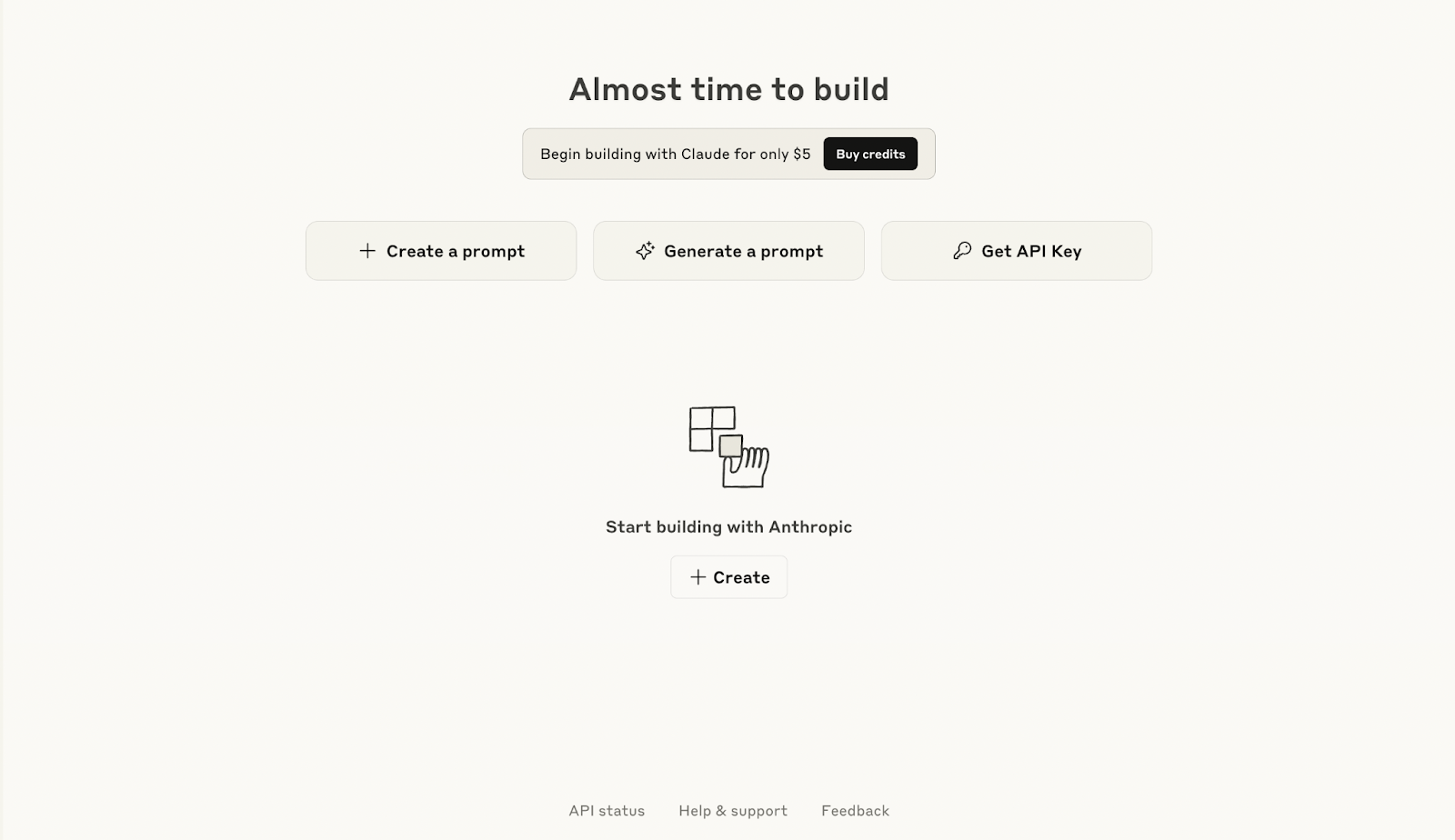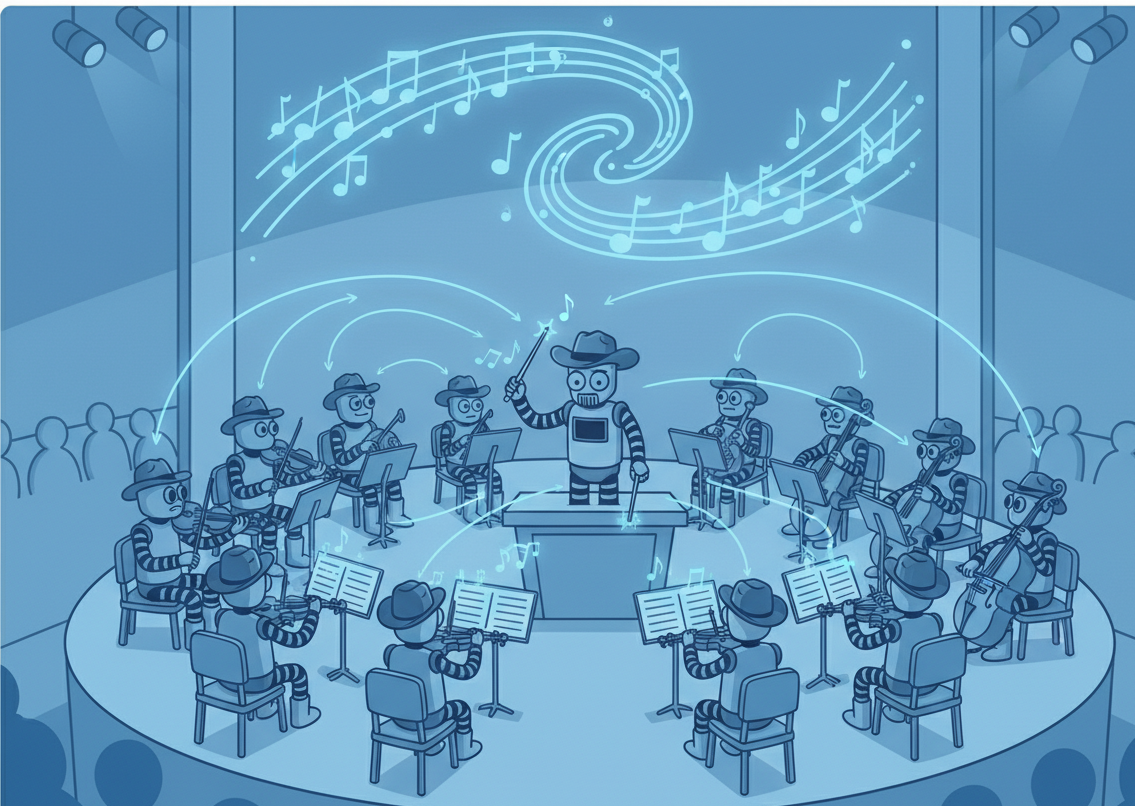Claude Prompt Generator

Anthropic's Prompt Playground, that auto-generates and evaluates prompts for their AI assistant Claude, was spotlighted by TechCrunch in July 2024 as a game-changing development.
that auto-generates and evaluates prompts for their AI assistant Claude. Meanwhile, "prompt engineering" has emerged as one of tech's hottest job categories, reflecting the critical importance of well-crafted AI instructions.

This guide covers everything you need to know about Claude prompt generators: what they are, how they work, the key tools available, their best use cases, current limitations, and what's coming next. Understanding these tools matters because better prompts lead to dramatically better outputs and faster development. Consider PromptLayer’s customer ParentLab: by letting non-technical teammates iterate and version prompts, they deployed new prompts ~10× faster and saved 400+ engineering hours in the first six months
How Claude Prompt Generators Work (and Why They Help)
A Claude prompt generator is an AI-powered tool that transforms a brief task description into a production-ready, Claude-optimized prompt. Think of it as your personal prompt engineering assistant that knows exactly how to speak Claude's language.
These generators solve the dreaded "blank page" problem by providing structured templates with clear sections for context, task instructions, and desired output format. Many use XML-like tags (such as `<task>` and `<output>`) or JSON formatting to organize information, a technique that aligns with how Claude was trained to process structured data.
The best generators incorporate proven prompt engineering practices automatically:
- Role and persona assignment ("You are an expert data analyst...")
- Scratchpad sections for step-by-step reasoning
- Few-shot examples to clarify expected outputs
- Explicit formatting instructions for consistent results
What makes these tools particularly powerful is their interactive approach. Rather than generating prompts blindly, they guide users through a series of questions about goals, constraints, and preferred style. The resulting templates remain fully editable, enabling quick iterations and refinements based on actual results.
Most importantly, Claude prompt generators include model-specific optimizations. They craft concise guidance that avoids triggering safety filters, use phrasing patterns that Claude responds to best, and often provide model-aware options for different Claude versions (like Claude 3's Haiku, Sonnet, or Opus variants). This specialized knowledge transforms generic instructions into Claude-optimized commands that consistently produce better results.
From Hacks to Built-in: Evolution and Ecosystem
The journey from manual prompting to today's sophisticated generators reflects the rapid maturation of AI development practices. As context windows expanded and use cases grew more complex, the need for systematic prompt creation became undeniable.
Anthropic's official generator launched in May 2024, integrated directly into their Developer Console. By July, they'd expanded this into a comprehensive Evaluate Playground that not only generates prompts but also tests and compares them.
Where They Shine: High-Impact Use Cases
Claude prompt generators excel across diverse applications, each benefiting from structured, optimized instructions:
Content and Writing applications leverage generators to establish clear outlines, maintain consistent tone, and define persona guidance. A blog post prompt might specify structure (introduction, key points, conclusion), voice (professional yet engaging), and role ("You are a technology journalist with expertise in AI"). This scaffolding helps Claude produce coherent drafts that stay on-topic and match desired style.
Translation and Localization tasks benefit from prompts that preserve nuance beyond literal word conversion. Generators create instructions that maintain formality levels, handle technical terminology correctly, and respect cultural context. A business email translation prompt might specify: "Translate from Spanish to Japanese, preserving the polite tone and all technical terms related to supply chain management."
Coding and Technical work sees dramatic improvements with properly structured prompts. Generators produce templates for code review that isolate code in tagged blocks, specify output constraints (single block, PEP8 compliance), and define the reviewer's expertise level. Debugging prompts might include step-by-step analysis requirements and specific error types to check.
Research and Analysis prompts benefit from clear structural requirements. Literature review templates might specify sections for findings, methodology critique, and synthesis of conclusions. Data extraction prompts include explicit steps for handling edge cases and formatting requirements for downstream processing.
Support and Chatbot applications use generators to define consistent agent personas, embed policy guidelines, and structure conversation flows. A customer service prompt might establish greeting protocols, specify when to request order IDs, and define escalation triggers, ensuring every interaction maintains brand standards.
Strategy, Education, and Productivity use cases showcase the versatility of well-crafted prompts. Market analysis templates request specific competitive frameworks, education prompts combine tutor personas with quiz generation patterns, and productivity tools create email templates that capture all necessary points while maintaining appropriate tone.
Limits, Caveats, and How to Get Good Results
While powerful, Claude prompt generators aren't magic wands. Generated drafts serve as starting points, not finished products. Even Anthropic acknowledges their tool doesn't always produce perfect results, iteration and testing remain essential parts of the process.
The principle of "garbage in, garbage out" applies strongly here. Vague task descriptions like "help with marketing" yield generic prompts. Success requires specificity about goals, constraints, and desired outcomes. The best results come from treating the generator as a collaborator: provide detailed context, review its suggestions critically, and refine based on actual Claude responses.
Over-reliance poses risks for professional development. Exclusively using generated prompts without understanding their structure can create a knowledge gap when troubleshooting is needed. The most effective approach combines automated generation with manual understanding, use the tool to accelerate work while learning why certain patterns succeed.
Model version drift requires ongoing attention. Prompts optimized for Claude 2 might need adjustment for Claude 3.5 or newer versions. While some generators stay current with model updates, others lag behind. Additionally, Claude-optimized prompts may not translate perfectly to other AI models; those XML tags that work beautifully with Claude might confuse GPT-4.
Cost and access barriers affect adoption. Anthropic's official generator requires API credits, frustrating users seeking free learning tools. Third-party alternatives fill this gap but introduce privacy concerns, sensitive task descriptions might pass through external servers. For confidential work, running prompts through official channels or self-hosted solutions becomes necessary.
Quality varies significantly across different generators. Anthropic's official tool benefits from insider knowledge, while third-party options range from sophisticated to simplistic. Smart practitioners test prompts from multiple generators, comparing results to find what works best for specific use cases.
Conclusion
The key to success lies in viewing these generators as collaborative tools rather than magic solutions. They encode collective wisdom about what makes Claude perform best, but your domain knowledge and iterative refinement remain irreplaceable. As Claude and its ecosystem continue advancing, mastering prompt generation today positions you to leverage even more powerful AI capabilities tomorrow.
PromptLayer is an end-to-end prompt engineering workbench for versioning, logging, and evals. Engineers and subject-matter-experts team up on the platform to build and scale production ready AI agents.
Made in NYC 🗽
Sign up for free at www.promptlayer.com 🍰



